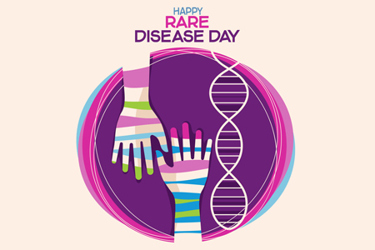Rare Disease Day 2024

By Erin Harris, Editor-In-Chief, Cell & Gene
Follow Me On Twitter @ErinHarris_1

Today is Rare Disease Day, and according to the National Organization for Rare Disorders (NORD), Rare Disease Day is a global initiative to raise awareness and generate support for everyone who is on a rare medical journey. It takes place on the last day of February, which this year is February 29th, the rarest day of the year. One out of every 10 Americans is living with a rare disease. Worldwide, there are more than 300 million people with rare diseases. Gene therapies are revolutionizing the treatment of a host of devastating and rare diseases, giving hope to patients who previously had no therapeutic options.
Indeed, gene therapy can target the specific genetic cause of a rare disorder, addressing the root cause of the disease rather than just managing symptoms. In some cases, gene therapy can offer a potential cure for rare disorders by replacing or repairing the faulty gene responsible for the disease. This can lead to significant improvements in patients’ quality of life and overall health. Gene therapy can be tailored to each individual person’s genetic makeup, allowing for a more personalized approach to treatment. This can improve treatment outcomes and reduce the risk of adverse reactions. Unlike traditional treatments that may require lifelong medication or therapy to manage symptoms, gene therapy has the potential to provide a one-time treatment that can offer long-lasting benefits. Advances in gene editing technologies, such as CRISPR-Cas9, have made gene therapy more precise and efficient, increasing its potential for treating a wide range of rare disorders.
With the approval of two gene therapies to treat sickle cell disease (SCD) on December 8, 2023, the FDA has approved 10 gene therapies for rare genetic disorders. An estimated 100,000 people in the U.S. have sickle cell disease, making it one of our country’s most prevalent rare genetic disorders. The two milestone treatments for SCD, Casgevy and Lyfgenia, represent the first cell-based gene therapies for the treatment of sickle cell disease in patients 12 years and older. Casgevy is the first FDA-approved therapy utilizing CRISPR/Cas9 while Lyfgenia uses a lentiviral vector for genetic modification. These therapies will impact so many lives, and additional approvals for gene therapies treat rare diseases are moving forward full steam ahead.
On the most recent episode of Cell & Gene: The Podcast, out today wherever you get your podcasts, you’ll hear my conversation with Jackson Laboratory’s (JAX) Rare Disease Translational Center (RDTC)’s VP Cat Lutz. Cat and I talk about RDTC’s mission, which is to build on JAX's long-standing history, deep expertise, and cutting-edge research facilities to serve those with rare disease by accelerating the pre-clinical phase. She and I talk about many facets of RDTC’s mission, including how the study of rare diseases potentially advances progress in common diseases and how RDTC uses gene therapy as potential cures for rare diseases. It’s an important episode in honor of Rare Disease Day. Be sure to tune in.
